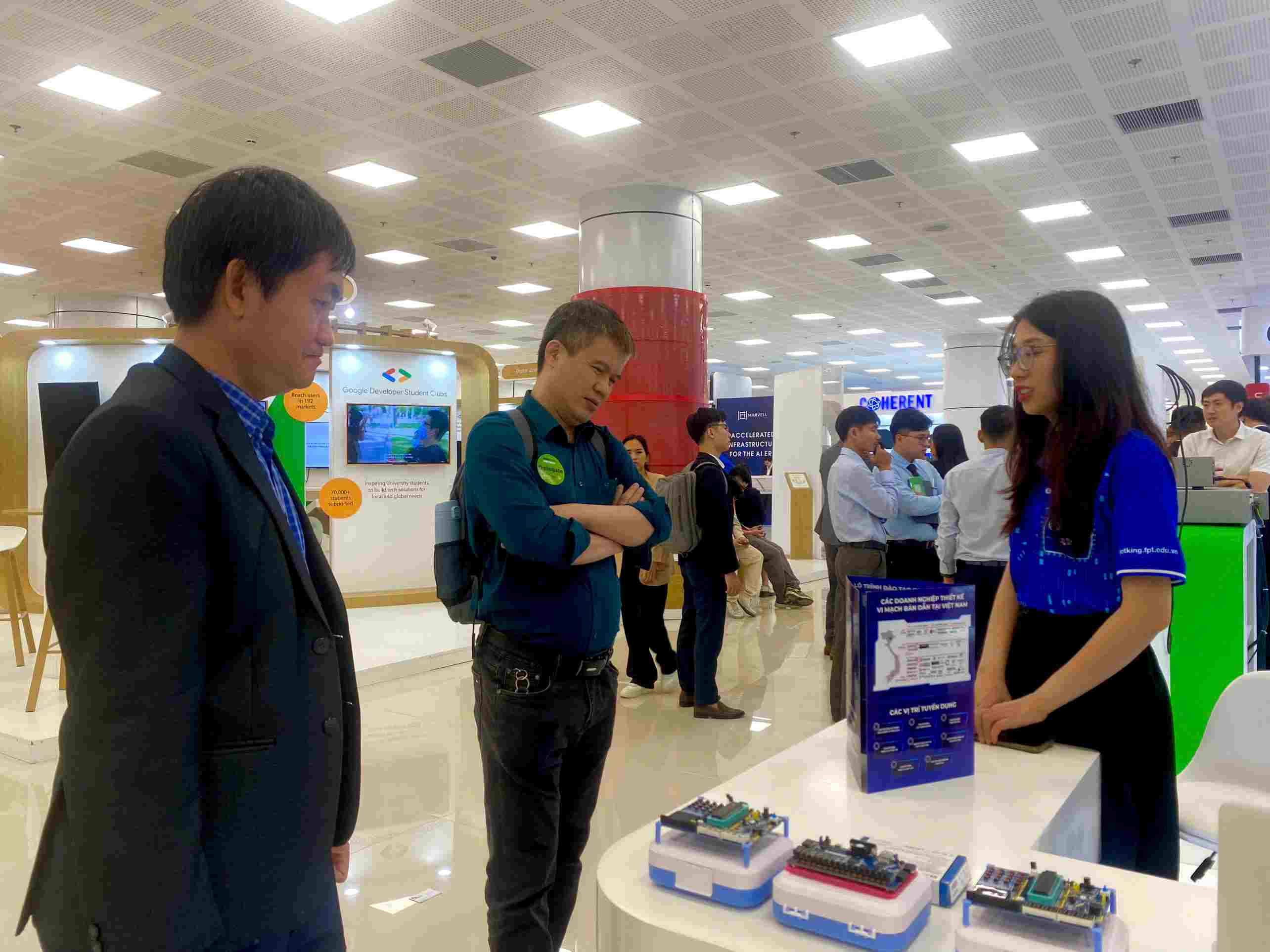Aim to be the region's leading semiconductor hub
Vietnam is at a very important time, preparing to enter a new era - the era of national development as affirmed by General Secretary To Lam. Vietnam focuses on promoting digital transformation, green transformation and developing science and technology, innovation to create breakthroughs in productivity, quality and increase the competitiveness of the economy.
In the context of the ongoing Industrial Revolution 4.0, the semiconductor industry plays a key role in the development of many high-tech fields. Vietnam, as one of the fastest growing economies in Southeast Asia, is facing a great opportunity to participate more deeply in the supply chain, especially in the field of equipment manufacturing.
According to Deputy Minister of Planning and Investment Nguyen Duc Tam, to demonstrate Vietnam's commitment to developing the semiconductor industry, the Prime Minister has issued the Strategy for Semiconductor Industry Development to 2030 and Vision to 2050, with the expectation of making Vietnam a leading semiconductor research and production center in the region.
“The goal is not only to participate in the global value chain, but also to build a semiconductor ecosystem, helping Vietnam to be self-reliant and develop sustainably in this field. To realize this goal, the Prime Minister has also approved the Program for Human Resource Development in Vietnam's semiconductor industry. Vietnam has been promoting cooperation in developing the semiconductor industry with developed countries and economies in the world. Through expanding cooperation with prestigious semiconductor partners in the world, Vietnam has been implementing the motto "if you want to go fast, go alone, if you want to go far, go together", step by step accompanying partners and businesses to participate in the semiconductor industry production supply chain" - Deputy Minister Nguyen Duc Tam affirmed.

Exploiting the potential to penetrate deeper into the supply chain
According to the Semiconductor Manufacturing International (SEMI) forecast, Vietnam's semiconductor market is expected to reach 7.01 billion USD by 2028, with an average annual industry growth rate of about 6.69% in the period 2023 - 2028.
In the context of the booming global semiconductor industry, Vietnam is expected to become a center for supplying raw materials, components, and assemblies for the semiconductor manufacturing industry, thereby moving deeper into the value chain of the global semiconductor industry. With an abundant human resource base and competitive production costs, Vietnam is capable of exploiting these opportunities to grow strongly.
Assessing Vietnam's potential in the semiconductor industry, Dutch Ambassador to Vietnam - Mr. Kees van Baar - said that the semiconductor equipment manufacturing supply chain is very large with the participation of many large and small enterprises around the world in many segments. Vietnam can fully utilize and promote the existing supporting industry to participate more deeply in this value chain.
“Equipment manufacturing is the backbone of the Dutch semiconductor industry and the Netherlands is ready to cooperate with Vietnam to contribute to the overall development of the global semiconductor industry,” Mr. Kees van Baar affirmed.
According to Mr. Arnaud Ginolin - Managing Director & Partner at Boston Consulting Group (BCG) - optimistically shared, Vietnam is possessing a "unique" opportunity with a favorable geopolitical market. In addition, innovative and pioneering policies on promoting human resources and attracting investment. According to him, this is a separate journey and a separate path.
Optimistic about Vietnam's potential, Mr. Chong Chan Pin, Vice President of SEMI's Southeast Asia Advisory Council, pointed out that Vietnam's infrastructure conditions have improved. Along with that, strong incentive policies and human resources, especially young people, are ready to learn and develop. Moreover, the 6% annual GDP growth is a good sign for Vietnam's attractiveness in the region. Mr. Chong Chan Pin also emphasized the importance of intelligent automation and the need to integrate new technology to be able to compete with other countries in the chip manufacturing sector.











